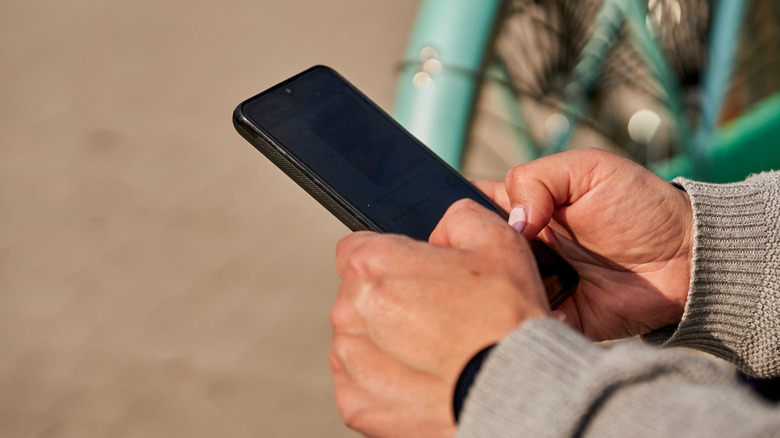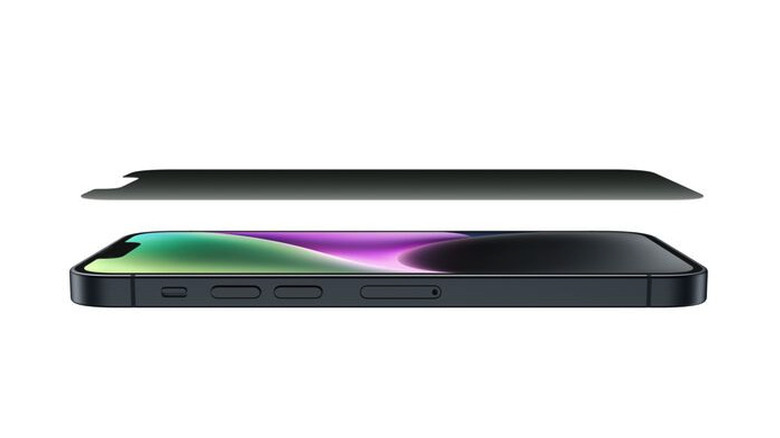Do Privacy Screen Protectors Make Your Phone's Display Darker?
We may receive a commission on purchases made from links.
If you frequently use your phone in public — whether on the train during your morning commute or while standing in line at the grocery store — you may have caught someone glancing at your screen, or at least thought you did. It's at times like these when many of us think about how we can protect our phone from prying eyes. After all, from banking information to private messages, our phone screens display a lot of personal information that we may not want to share with those around us. You're probably already aware of some of the ways your smartphone might be tracking you, and have downloaded privacy apps for your Android phone to help keep you safe online, but none of these address the real risk of someone looking over your shoulder and seeing what's on your screen.
That's where privacy screen protectors come in. These thin filters limit what would-be snoopers can see on your screen. They work just like a regular screen protector and can be made of materials like tempered glass or PET plastic. The big difference is that they do two jobs at once: protecting your screen from scratches and shielding its content from others. They do this by restricting the viewing angle of your screen. You may be wondering: if a privacy screen protector makes it harder for others to see your screen, will it be harder for you to see what's on it, too?
How privacy screen protectors affect screen brightness
While these screens will make your screen slightly darker, in most environments you should be able to see it clearly when looking straight on, especially if you have the brightness turned up. Privacy screen protectors use micro-louver technology to narrow the viewing angle of your phone's display. You can think of these as tiny vertical blinds that keep others from seeing your screen. As long as you're looking straight at it, everything appears clear, but to anyone off to the side, the screen looks dark. However, these protectors do have a dimming effect, with one of the drawbacks being that the screen may appear less bright or slightly tinted, which can usually be offset by turning up your phone's brightness level. Keep in mind that if you turn up your phone's brightness level, its battery may drain faster.
The quality of the screen protector can impact how well you can see the display. Therefore, it's worth learning about whether glass or plastic screen protectors are better so you can choose the best one for your needs. A poor-quality privacy screen protector may cause your phone's display to appear overly dark, grainy, or distorted, even when you're viewing it directly. A side benefit of some privacy protectors is that they come with anti-glare screens, which can make your screen easier to view in well-lit areas.

